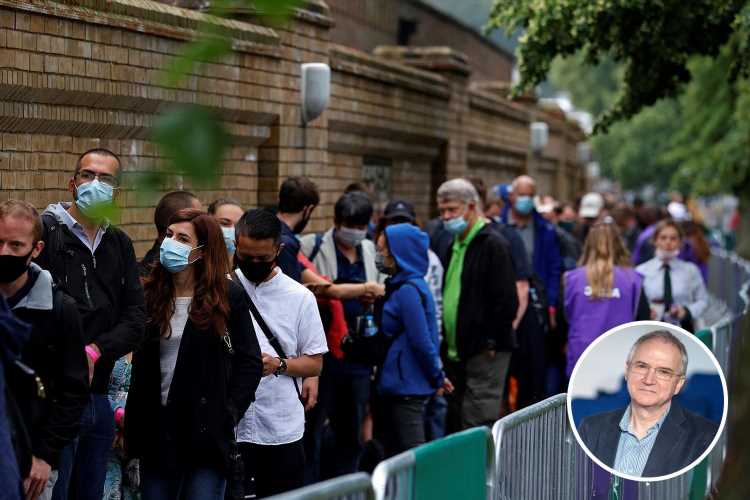FREEDOM Day could be pushed back even further due to the “ferociously infectious” Delta variant, an expert has warned.
Professor Peter Openshaw said July 19 "could be delayed" after already being moved from June 21 over Delta fears.
🔵 Read our coronavirus live blog for the latest updates
Prof Openshaw, a member of the Nervtag advisory group from Imperial College London, told Sky News: "I think it's a possibility this Delta agent is ferociously infectious and we can see the impact it has on relatively unvaccinated populations – Australia for example.”
He added: "At the moment I'm hopeful that we can get the vaccination rates very high and the 19th is a reasonable date, but I think we just need to bear in mind that what we're fighting here is a virus, it's not a political polarised debate it's a battle against the virus."
The Prime Minister has been looking at data for whether it is safe to unlock England sooner than planned, on July 5.
No10 said last week a decision on whether to pull this trigger will be made today, June 28.
Prof Openshaw said bringing Freedom Day forward to July 5 would be a “mistake”.
"I think bringing the date forward would be a definite mistake,” he said.
"I do hope that that date, which of course was said to be the earliest date, is a provisional date and it could even be delayed. I do hope we will not be accelerating that easement."
Prof Openshaw said “you can see the [case] numbers increasing, despite the measures that we have in place at the moment”.
Therefore, it was important to get high vaccine rates before ministers even consider lifting the remaining restrictions.
An average of 10,000 people are being diagnosed with Covid each day, double the 5,000 at the start of June.
Hospitalisations are not rising at the same rate, but are still on a slight uptick.
Prof Openshaw said: "It's so important, particularly that anyone who is in the high risk age groups, does step forward at this time and gets vaccinated because this virus is really good at spreading.
“It's pretty likely that people will either get immune either by vaccination or by being infected and there's absolutely no debate at all, that the best way to get immune to this virus is by getting vaccinated."
Prof Openshaw said he also thought teenagers would need to get vaccinated in order to prevent another Covid outbreak in the winter.
He said he hoped the new Health Secretary Sajid Javid will take a "cautious approach" ahead of his update later today.
Mr Javid became the Health Secretary following Matt Hancock’s resignation over the weekend after The Sun revealed an affair with his aide.
Lockdown-sceptic MPs hope Mr Javid will break from the approach of his predecessor and push for a swift lifting of restrictions.
But in his first Commons statement later today, Mr Javid is not expected to bring what is left of lockdown to a close any earlier than July 19.
He said on Sunday that his “most immediate priority” would be “to see that we can return to normal as soon and as quickly as possible”.
It comes as other scientists have said the data look promising for England to come out of restrictions on July 19 – but no earlier.
Professor Sir Andrew Pollard, director of the Oxford Vaccine Group, and chief investigator on the Oxford vaccine trial, said if levels of protection from jabs continue then we should be in a "very good position", when asked about restrictions being lifted soon.
He told BBC Radio 4's Today Programme: "We're looking at the data that's coming from Public Health England about the effectiveness of the vaccines and we're seeing more than 90% protection.
"If that persists as more and more data emerge, and we will get much greater certainty of those figures in the weeks ahead, then we reach a point where, with most people vaccinated with at least one dose and those at highest risk having two doses, it does put us in a very good position.
Professor Sir Peter Horby, chairman of Nervtag, said we “should not rush” relaxing the remaining rules to avoid any reversal.
He told BBC Andrew Marr on Sunday: “We always have to be driven by the data, not the dates.
“At the moment, the data is encouraging that we can do that. But we have to make sure that we follow the data.”
Source: Read Full Article




